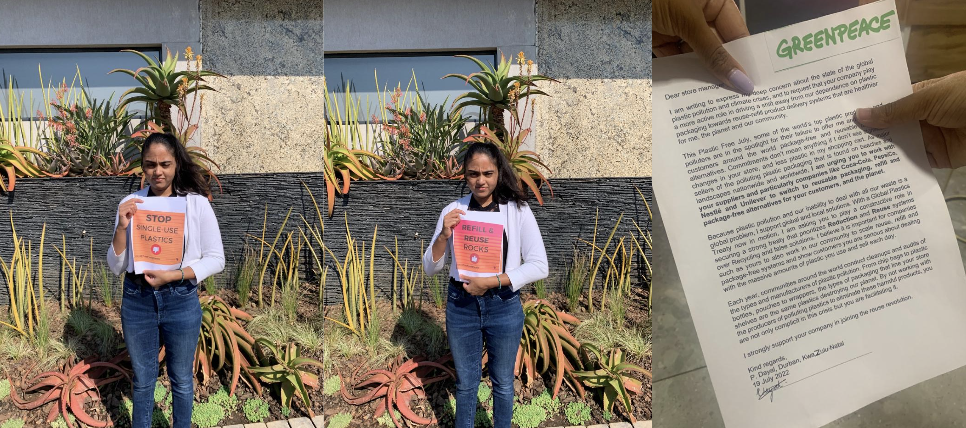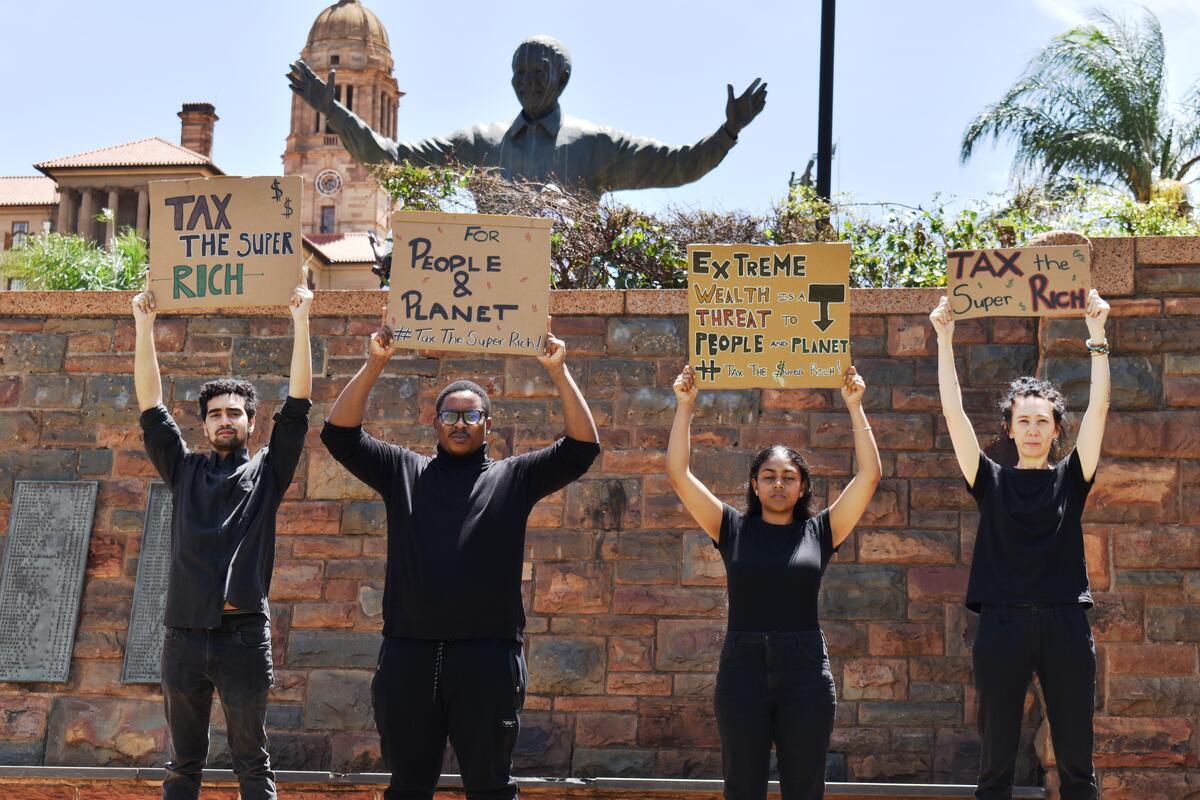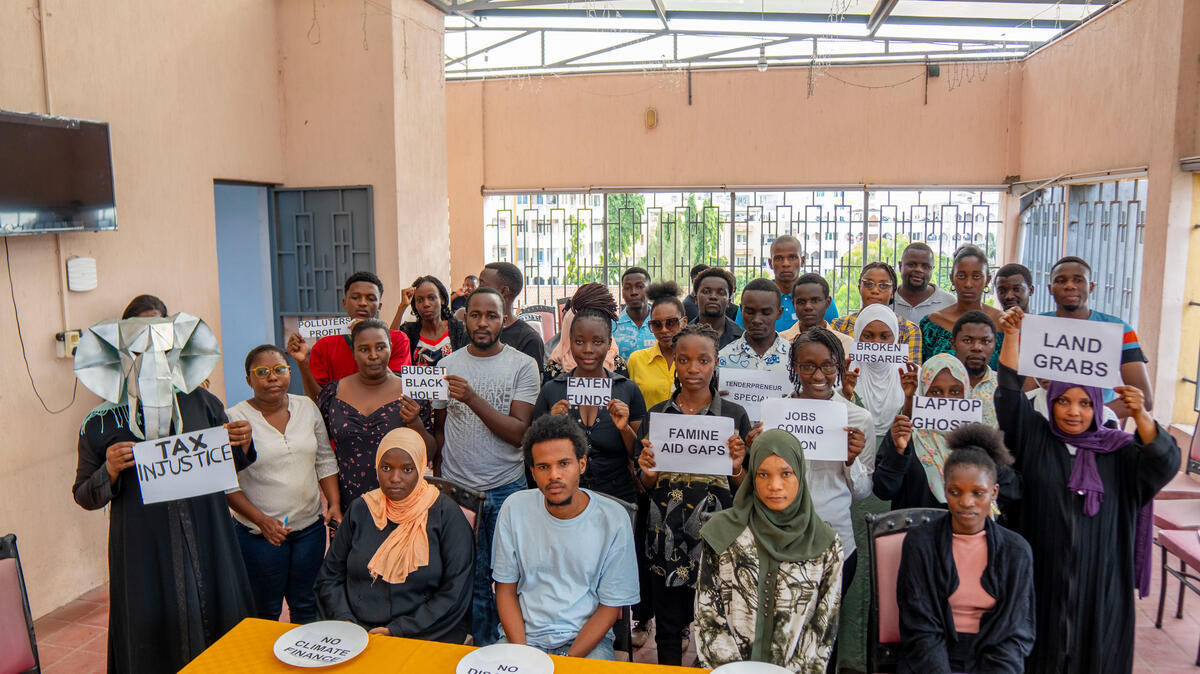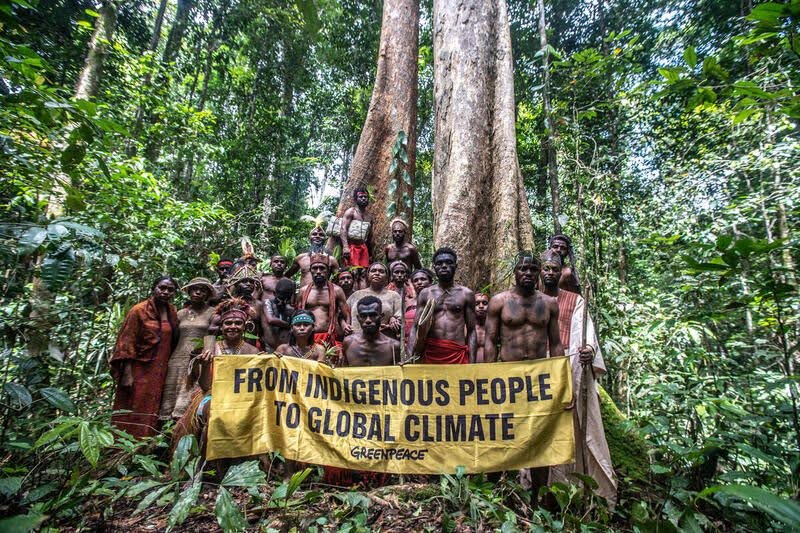I am Prina, a Greenpeace Africa volunteer based in Durban and I just took action with Greenpeace Africa this Plastic Free July. Plastic Free July is a month where Greenpeace Africa challenges the biggest polluters such as Pepsi, Coca-Cola, Unilever and Nestle to cut down their plastic waste and commit to 50% reuse and refill by 2030. Greenpeace Africa also uses the initiative to acknowledge stores that have reuse and refill systems in place and encourage other stores to do the same.
So, I visited five different shops to find out whether they had any reuse and refill alternatives to single-use plastics to offer their customers.
The stores I visited (names withheld as the managers wanted to remain anonymous) were as follows; the first store was a takeaway store selling fizzy drinks, and other plastic products, the second store was a pharmacy. The third store was a coffee shop that only offered plastic cups for their take-away coffees and drinks. The fourth and fifth stores were convenience stores, where many people do their shopping. I was disappointed to find most of the retail stores rife with single-use plastic, from plastic drinking bottles to fruits and vegetables drowning in plastic wrap.
I had a chat with the managers and handed my letters to them, which explained my intentions and the possible actions they could take in order to help curb the plastic pollution crisis like urging suppliers and big plastic producers to help them provide refill and reuse systems. All the managers I spoke to were unsure at first but agreed to try to implement a refill and reuse system. >> https://www.greenpeace.org/africa/en/blogs/51988/plastic-free-july-its-time-to-hold-polluters-accountable/
It’s important that store owners and the public pressure big business, because ultimately companies like Nestle, Pepsi, Coca-Cola and Unilever are the true culprits; they can develop systems to refill your drinks or sell their products in glass bottles that can be returned to stores. These corporations have the financial means to develop alternative solutions to single-use plastic.
While we wait for them to wake up, our individual efforts are key in breaking free from plastic. Here are some useful tips:
- Take your own mug/flask to your favourite coffee shop and ask them for a refill.
- When you visit a restaurant, take a lunch box for your leftovers.
- When buying groceries, remember to take along a reusable bag, so you don’t have to get a single-use plastic one.
Although I have listed ways that you can help us break free from plastic and that consumers are making these changes, it’s still the biggest polluters and corporations that we need to pressure to change, they must offer us alternative solutions such as refill and reuse and meet us, the consumer, halfway.
It seems almost impossible to get rid of plastic because it is so convenient. However, we need to come to terms with the fact that plastic is harmful to our community, people’s health, animals and our environment.
Greenpeace has also raised awareness about how single-use plastic is harming our environment and the need to act >> https://www.greenpeace.org/africa/en/blogs/50471/plasticstreaty-why-a-global-plastics-treaty-is-essential-to-africa/.
I fear the day when there will be more plastics than fish in the ocean. Together we can make a difference in our communities, with actions such as reducing our individual single-use plastic use, asking retailers to start embracing a refill and reuse system and, most importantly, holding the world’s largest plastics polluters accountable, which will go a long way to reducing single-use plastic pollution. Let’s break free from plastic.




